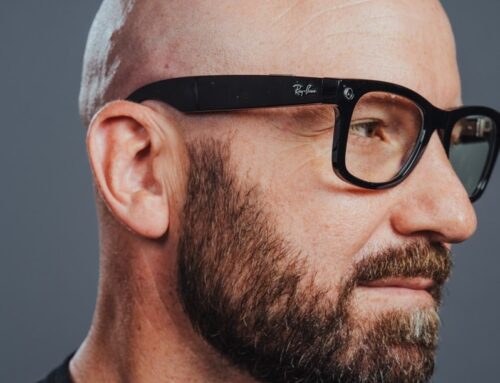‘Ingrained resistance to cannabis’: New Hampshire’s medical marijuana program offers comfo
September 26, 2025
Most evenings, Louise Fisher winds down by taking out her bowl, selecting a cannabis “flower” from her stash, smelling it and grinding it. Then, she steps out on the porch of her Gilmanton home to look up at the stars and “converse with the universe.”
It’s a nice feeling, she said, but that’s not why she smokes. She does it to ease the crippling affliction from her osteoarthritis, among other ailments.
Fisher is one of fewer than 15,000 people who can legally use marijuana in New Hampshire, certified by a doctor to participate in the state’s Therapeutic Cannabis Program. The plant’s benefits are life-changing, she said, but the medicine’s high cost means cutting back on other expenses. Earlier this summer, Fisher, her husband and her son spent $548 on medical marijuana products that’ll last them roughly six weeks — and that’s with their senior and veteran discounts.
For the Fishers, it’s a worthy expense that improves their quality of life, but the drain on their bank account dictates the way they shop, where they vacation and how often they go out.
“New Hampshire needs to see this and make it easier and find a way to let everyone have access because financially, it is expensive,” Louise said. “We are cutting out all kinds of things so that we can keep up, so that we can feel good every day.”
With a litany of rules restricting the program, patients can only buy from a few pre-approved growers and retailers who operate just seven dispensaries across the state, making New Hampshire-grown marijuana pricier and, in many instances, more difficult to obtain than the same products across state lines.
State lawmakers from both parties have attempted myriad maneuvers to tamp down prices and increase access to the program, only to be stymied year after year by hard-line Republicans. Opponents, including Governor Kelly Ayotte, argue that marijuana jeopardizes public safety and that the policies proposed to drive down costs would be too risky and difficult to regulate.
Fisher hopes to see that attitude change.
“New Hampshire really needs to get the stick out of you-know-where in the legislature because, I mean, they’re too rigid,” Fisher said. “I mean, they’re just too rigid.”
‘They need a ton more’
Sharon Sheedy switched to cannabis because whenever she thinks back to a time when she was prescribed opioids, she shudders.
Her doctor has recommended them to her several times, but Sheedy never lasts long on that course of treatment. Opioids mess with her mind, she said, making her loopy and incapacitating her from doing things she loves, like taking her grandchildren fishing, to the movies and to school.
“The medication they give me, I can’t function,” said Sheedy, who lives in Canterbury. “My reflexes are off. Everything is off, like I’m a little dizzy. I feel like maybe I had one too many drinks, you know what I mean?”
Sheedy, who has an implanted spinal cord stimulator after surviving a car crash in 2019, struggles with chronic back pain. She needs some sort of relief, though, so she applied for the state’s cannabis program.
A self-described lightweight, Sheedy said that after much trial and error, she’s learned she usually only needs half of the typical recommended dose of cannabis. In the summer, she makes THC-infused ice cubes. In the winter, she buys cannabis honey to mix into hot tea. And with a special sugar-free recipe that she learned from the growers at GraniteLeaf, she prepares gummies to take at night that relax her muscles and calm her nightmares.
Two years later, the shift has allowed Sheedy to manage her pain and “still be a person.”
“For me, I can now function. I can drive. I can do groceries,” Sheedy said. “I can hang with the kids and not worry that I’m spacey or weird-feeling. It just, my life is better now because I can do that.”
Sheedy’s low tolerance works in her favor. With her senior discount, timing her purchases with dispensary sales and spreading out her miniscule doses, she typically spends anywhere from $70 to $130 each visit. The supply stretches for more than a month.
“If you figure what you spend on a prescription for, you know, a strong pain medicine, and when you figure out you’ve lost the whole day because you’ve taken one,” Sheedy said, “it’s really a no-brainer for me.”
At the Fishers’ house, their $548 supply lasts the three of them roughly six weeks. It includes two 10-millileter syringes of CBD oil, a bag of gummies, half an ounce of smokable material, two CBD vape pens and three other vape pens with various strains of cannabis.
The cost is worth it, Fisher said. After losing her brother to an overdose and seeing the opioid epidemic unfold throughout her career as a nurse, she likes that cannabis, combined with other homeopathic methods, enables her to live her life without risking deadly addiction.
She first started using medical marijuana back in 2016 as a natural tool to relieve her pain in concert with other homeopathic methods like meditation, yoga and acupressure. It’s helped her so much that her husband, Frank, sought out his own medical marijuana card last year to treat his hip pain.
“I think having a dispensary is the greatest thing in the world,” he said. “I think New Hampshire needs to get more dispensaries, and they need to get more competitive with their prices. There’s only seven dispensaries in this state, and they need a ton more.”

Unlike the rest of New England, recreational marijuana possession and use remain illegal in New Hampshire, and state lawmakers keep the medical program on a tight leash, aiming to ensure marijuana only gets into the hands of those who are approved to use it.
About 14,700 people are certified through the program as patients or caregivers, according to state data. That’s close to 1 in every 100 Granite Staters.
Only three state-approved, not-for-profit companies, called alternative treatment centers — GraniteLeaf Cannabis, Sanctuary Medicinals and Temescal Wellness — can legally sell cannabis products here.
Prices remain high due to the program’s structure and the many safety regulations established by state law. Growers struggle to scale their business with a limited customer base, and various state laws require extensive quality checks and security measures. For example, recent efforts to allow cannabis to be grown in greenhouses — which growers say could be kept secure while cutting down on energy costs and therefore easing consumer prices — were shot down by conservative lawmakers who said safety regulations weren’t specific enough.
The Fishers sometimes drive over an hour to shop in Maine, which accepts out-of-state medical cards and offers the cannabis they need at a lower price. The quality of New Hampshire cannabis, however, can outpace that of other states.
Jerry Knirk, a retired surgeon who chairs the state board that oversees the medical cannabis program, said you pay for what you get.
New Hampshire growers must get everything tested by an external lab for cannabinoid content and potential contaminants to ensure high-quality, medical-grade products. They also thoroughly label everything and conduct education and outreach, which requires money and labor.
“All of those things will increase the cost, and that is a problem,” Knirk said, “but it’s kind of like it is with just about anything else: You get to get a high-quality product that costs a little more than something that may be very poorly regulated.”
Outside of their trips to Maine, the Fishers drive to GraniteLeaf’s Chichester location every six weeks or so. It’s not that inconvenient, seeing as their home in Gilmanton is just 20 minutes away, but other patients, particularly in the North Country, must travel upwards of an hour to get their medicine.
New Hampshire’s seven dispensaries are located in Chichester, Merrimack, Plymouth, Conway, Dover, Lebanon and Keene.
Patients are only allowed to purchase so much at once, making it difficult to stock up. A legislative effort to increase the legal possession limit for patients failed earlier this year.
‘You can’t win’
Since the program’s start in 2013, lawmakers have expanded it several times. More common and general conditions, like anxiety and pain, have gradually joined the ranks of conditions that make someone eligible.
New Hampshire’s will-they-won’t-they relationship with marijuana stems from a divide primarily within the Republican Party. Some of the strongest advocates for legalization are conservatives in the State House who side with Democrats, while others, including Ayotte, are staunchly opposed.
Republican state Sen. Daryl Abbas, for example, said in April that some of the proposed changes to increase access — including higher possession limits for certified patients and allowing them to cultivate their own cannabis plants at home — could create loopholes and make medical marijuana harder to regulate and enforce.
Ayotte has said she supports maintaining the Therapeutic Cannabis Program, but recreational legalization is a nonstarter.
“I don’t think it’s the right direction,” she told the Monitor on the campaign trail last year.
The Fishers attributed the resistance to a stigma that lingers around marijuana. Between that and the cloud around opioids, Louise said, “you can’t win.”
Several other patients in New Hampshire’s medical program who initially expressed interest in being interviewed by the Monitor for this story ultimately chose not to, fearing repercussions at work and elsewhere if their name was attached to marijuana use.
Knirk said that stigma still has a stronghold in the Legislature, too. He doesn’t envision that changing without some turnover. When he faces lawmakers and tries to explain the rationale behind certain bills that he believes would help cannabis patients, he said, his advice often falls on deaf ears.
“Some of the things that we need to do just to make the program work better are pretty straightforward,” Knirk said, “and yet we kind of run into some resistance sometimes that I think is just ingrained resistance to cannabis, nothing more than that.”
Search
RECENT PRESS RELEASES
Related Post




